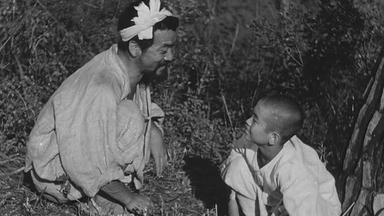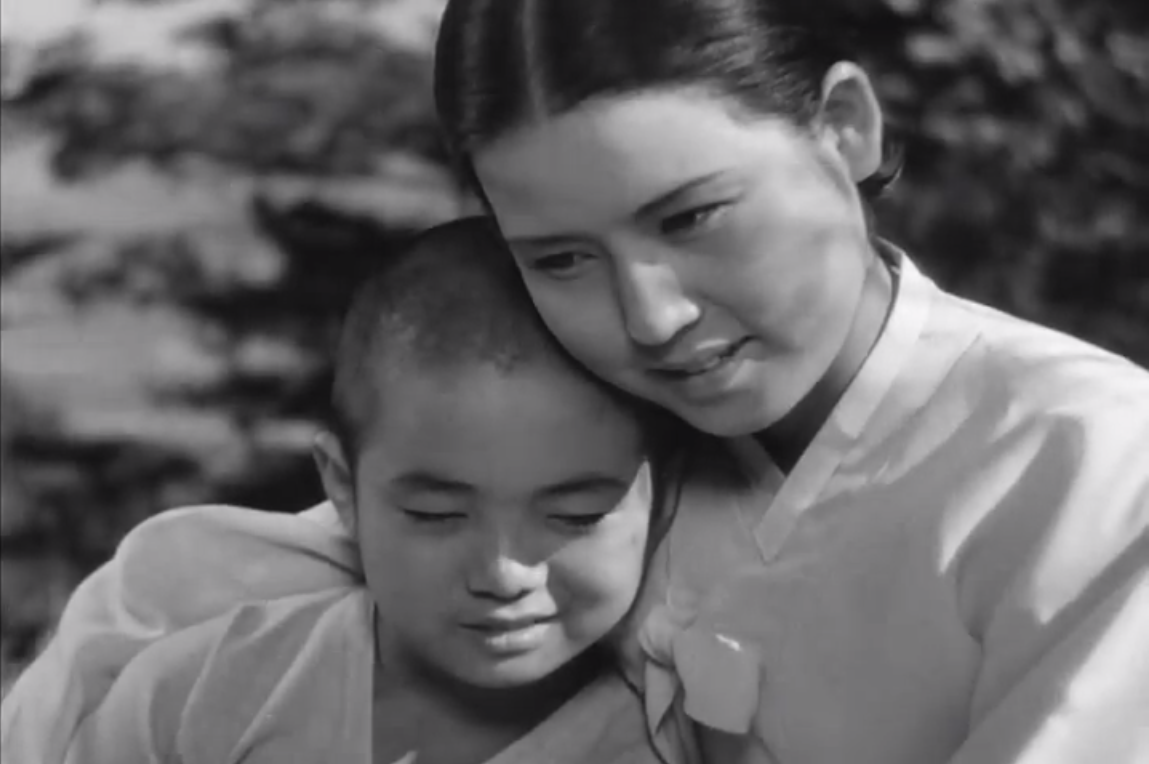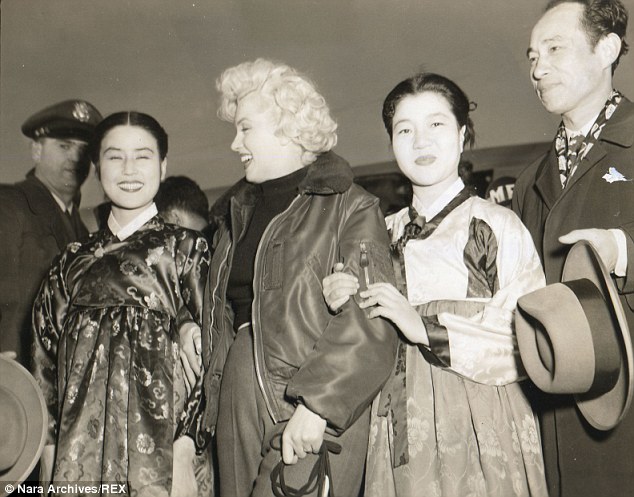Stories of childhood occupy a central place in our collective storytelling legacies. Like any art form, cinema has no shortage of entries: Truffaut’s The 400 Blows, Kiarostami’s Where Is The Friend’s Home?, Erice’s The Spirit of the Beehive, Spielberg’s E.T., and probably whatever you just watched. Yong-Kyu Yoon’s gentle 1949 Hometown of the Heart (Maeum ui kohyang) is a classic of the genre.
Why is this so? Perhaps because we – artists, readers, writers, filmmakers, filmgoers – all were children once. Perhaps because the progress from childhood to adulthood provides ample narrative space for a range of recognizable tensions and transitions, in the traditional Bildung fashion. Maybe, Occam’s Razor-style, we just generally think kids are pretty cute.
Min Yu, who plays Hometown of the Heart’s protagonist Do-Seong, sure is. He’s an orphaned child, with a mother in Seoul he longs for and a father he never knew. He is being raised in a Buddhist temple, an environment defined by rigor and routine he finds stultifying. His orphan status make him a pariah to the village kids, who mock his enforced monkishness as they frolic in nature. Do-Seong dreams of a mother’s return, of city life in glamorous Seoul, or, if nothing else, the freedom to play in the woods.
Director Yong-Kyu Yoon approaches the story with stately grace, lingering on small moments. Comparisons to Ozu are apt. Pillow shots are absent – Yoon prefers twilight landscapes and movement, compared to that Japanese master’s insistence on low-angle domesticity – but the sensibility seems close. Both eschew dramatic fireworks for simple, empathetic images that manage to emphasize both internality and the relations between humans in the world.
 In Hometown of the Heart, Do-Seong’s dreams come true, but in complicated fashion. He discovers a new maternal figure in Eun-hee Choi, the great Korean actress in an early role as a widow who lost her own son. Their connection is immediate and obvious – a child without a mother and a mother without a son. The arrival of his prodigal birth mother complicates matters. This is a story of family, invented, lost and found. It’s also a story of a longing for rootedness, for other people and places to complete you.
In Hometown of the Heart, Do-Seong’s dreams come true, but in complicated fashion. He discovers a new maternal figure in Eun-hee Choi, the great Korean actress in an early role as a widow who lost her own son. Their connection is immediate and obvious – a child without a mother and a mother without a son. The arrival of his prodigal birth mother complicates matters. This is a story of family, invented, lost and found. It’s also a story of a longing for rootedness, for other people and places to complete you.
In a revelatory essay, Dafna Zur contrasts the film with Homeless Angels (Jip oepnneun cheonsa), made a decade earlier and representing a different approach. Whereas war-era Korea imagined a childhood progress from a state of wildness to one of productivity, Hometown of the Heart nearly fetishizes the release both the forest and the city could provide – a new freedom characterized by escape from structure and stricture. In this and so many other ways, the Bildung is rooted in and animated by concerns of time and place. When we tell the story of a child, we tell stories about ourselves.
Hometown of the Heart has several odd codas. The film was rejected by South Korean censors for its apparent political bent (in fairness, it feels quite leftist in orientation), and its director eventually moved to the North instead. Its star, Choi Eun-Hee, went on to fame and glamour, but was kidnapped half a century later by North Korean agents in her older age and amid a declining career. (North Korea denies this, but North Korea denies a lot of things.)
It’s a bizarre story, and one it’s hard to believe hasn’t been made into a movie: in order to create a desperately desired homegrown film industry, Kim Jung-Il and his family spearheaded abductions of filmmakers and stars, holding them in bondage and forcing the creation of cinema. A few classics were created through this coercive, nightmare process. Like The Act of Killing, it stands out as a testament to the desire and horror that images generate, our desire to exist and to replicate the things we adore.
Hometown of the Heart is a world removed from these – a small story of a boy who misses his mom. But every story exists in a context. This is a fascinating and troubling one.


